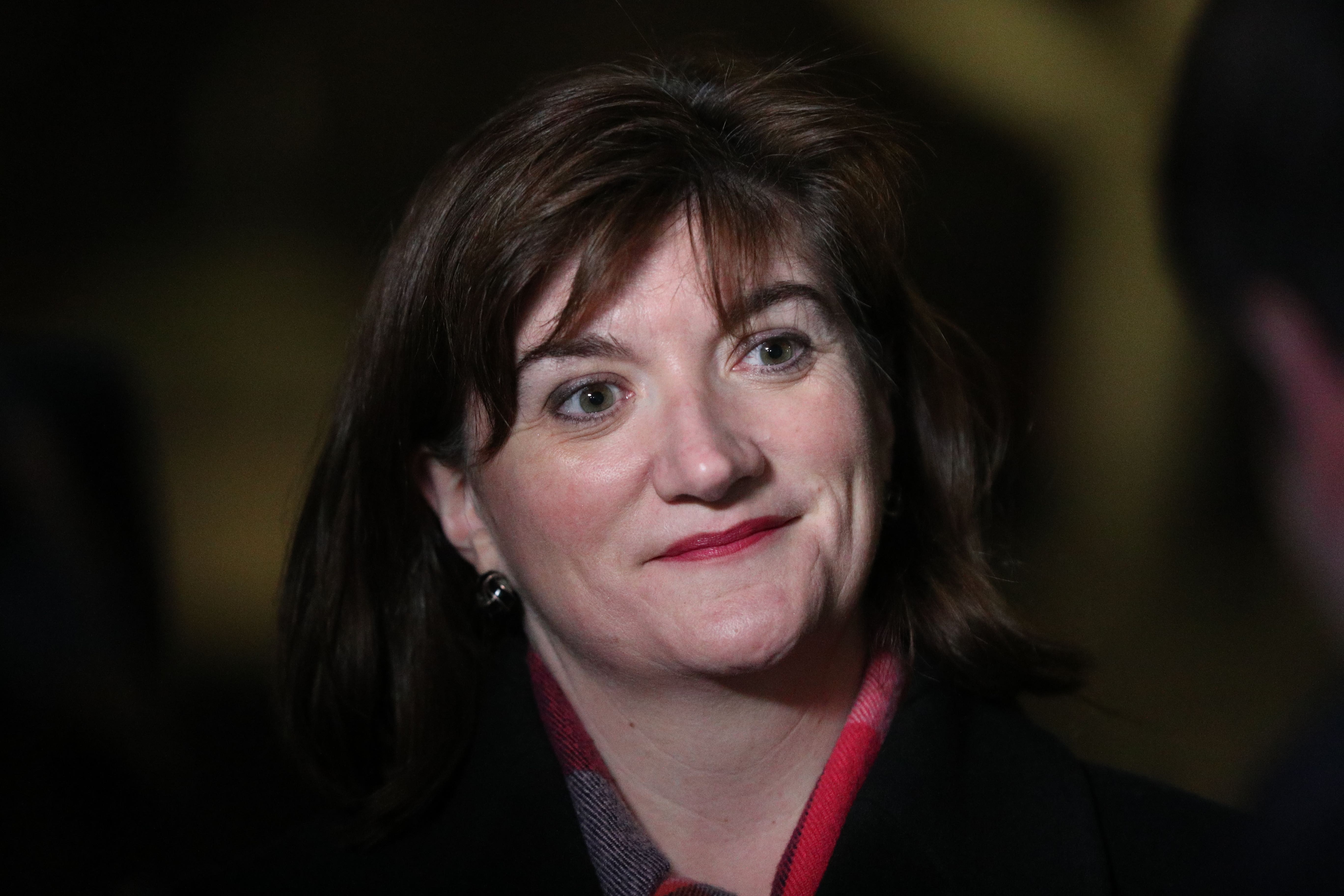Government is ‘condoning dangerous online content’, says ex-culture secretary
Nicky Morgan claimed the Government is ‘condoning’ harmful content by rejecting calls to make filtering it out the default setting.

The Government is “condoning” harmful and dangerous online content by rejecting calls to make such content filtered out by default, former culture secretary Nicky Morgan has claimed.
Tory peer Baroness Morgan of Cotes has called for the option to filter out harmful content regarding suicide, self-harm, eating disorders, abuse and hate on online platforms to be the default setting for adults.
This would require users to “flip a switch” if they want to opt in, rather than opt out, to “the most dangerous content”.
Some of the content we are discussing has literal life and death repercussions
However, the Government has refused to write this into law, arguing that it would encroach on users’ rights to freedom of expression.
Lady Morgan responded that, by refusing to implement this measure, they are condoning “insidious, deliberately harmful and deliberately dangerous” content.
She said in the House of Lords: “The Government, in choosing not to adopt such amendments is making an active choice, and I’m afraid the Government is condoning the serving up of insidious, deliberately harmful and deliberately dangerous content to our society, to younger people and vulnerable adults.
“And I would just say to the minister that he would actually be better off if he and the Government said, ‘That is the choice that we have made’.
“I find it a really troubling choice, because I was involved in this Bill a number of years ago – there’s been a certain turnover of culture secretaries in the last couple of years and I was one of them – and I find that choice really, really troubling.”
She added that the content being discussed, especially related to pro-suicide, pro-self-harm and pro-anorexia, has “literal life or death repercussions”.
Lady Morgan left the Department for Digital, Culture, Media and Sport (DCMS) in the February 2020 reshuffle after announcing her intention to “step back from ministerial life”.
Her comments came as peers continued their line-by-line scrutiny of the Online Safety Bill, aimed at tackling illegal and harmful content by imposing new legal requirements on big tech companies.
Culture minister Lord Parkinson of Whitley Bay rejected Lady Morgan’s call for an opt-in system when it comes to being exposed to harmful content such as pro-suicide or pro-anorexia content.
He said: “These amendments encroach on users’ rights in two ways.
“First, these amendments intend to make the decision about whether to have these features turned on on behalf of users.
“It is especially aimed at those who might not otherwise choose to use those features.
“The Government does not consider it appropriate to take this choice away from adults, who must be allowed to decide for themselves what legal content they see online.
“Second, these amendments would amount to a Government requirement to limit adults’ access to legal content.
“This presents real freedom of expression concerns which the Government cannot accept.”
Several peers from across the House argued that keeping the status quo is siding with the big corporations, whose current set-up is used for their own self-interest, whether that be to maximise time on the site, advertising revenue or data harvesting.
They cited the case of Molly Russell, a teenage girl who took her life after being exposed to graphic self-harm and suicide content online.
While the Bill would establish a higher level of protection for children, that protection would be removed once they turn 18, and all adults would be exposed to harmful content, unless they choose to opt out.
Long-time advocate for children’s rights in the digital world, Baroness Kidron, argued that users are currently “inundated with material algorithmically that we don’t want”.
She added: “We already have default settings – the default settings at the moment are profiling us, filtering us, rewarding us. We are not starting at zero.”
Meanwhile, Baroness Fraser of Craigmaddie, chief executive of Cerebral Palsy Scotland, argued that the current system does not adequately protect vulnerable adults, such as those with physical and mental disabilities, or those with mental illnesses.
She argued that it is easier for adults with capacity to opt in to dangerous content than it is for those without capacity to opt out.
Baroness Parminter, whose adult daughter has struggled with an eating disorder, said: “The idea that you can get someone who is controlled day and night by an eating disorder to make the decision to opt out of accessing social media content, when we know that people with eating disorders are gravitating towards that because it provides them with content that sustains their illness …
“It provides them with communities of other users – these pro-ana sites – which sound incredibly comforting, but are actually communities of people who are encouraging people, sometimes literally, to starve themselves to death…
“The idea that they are going to voluntarily opt out of that is away with the fairies.”
Lord Parkinson argued that the user empowerment tools – including an option to filter out harmful content – is just one of the Government’s “triple shield” approach to protecting adults online.
The other two measures revolve around removing content that is illegal and content that is against the terms of service of online platforms.
Bookmark popover
Removed from bookmarks